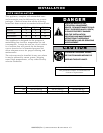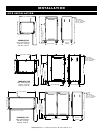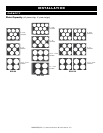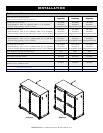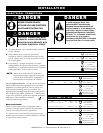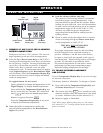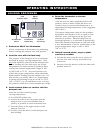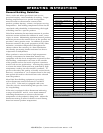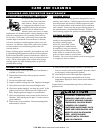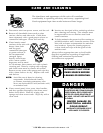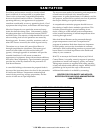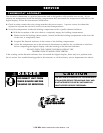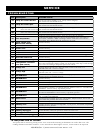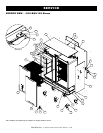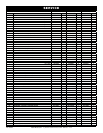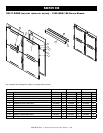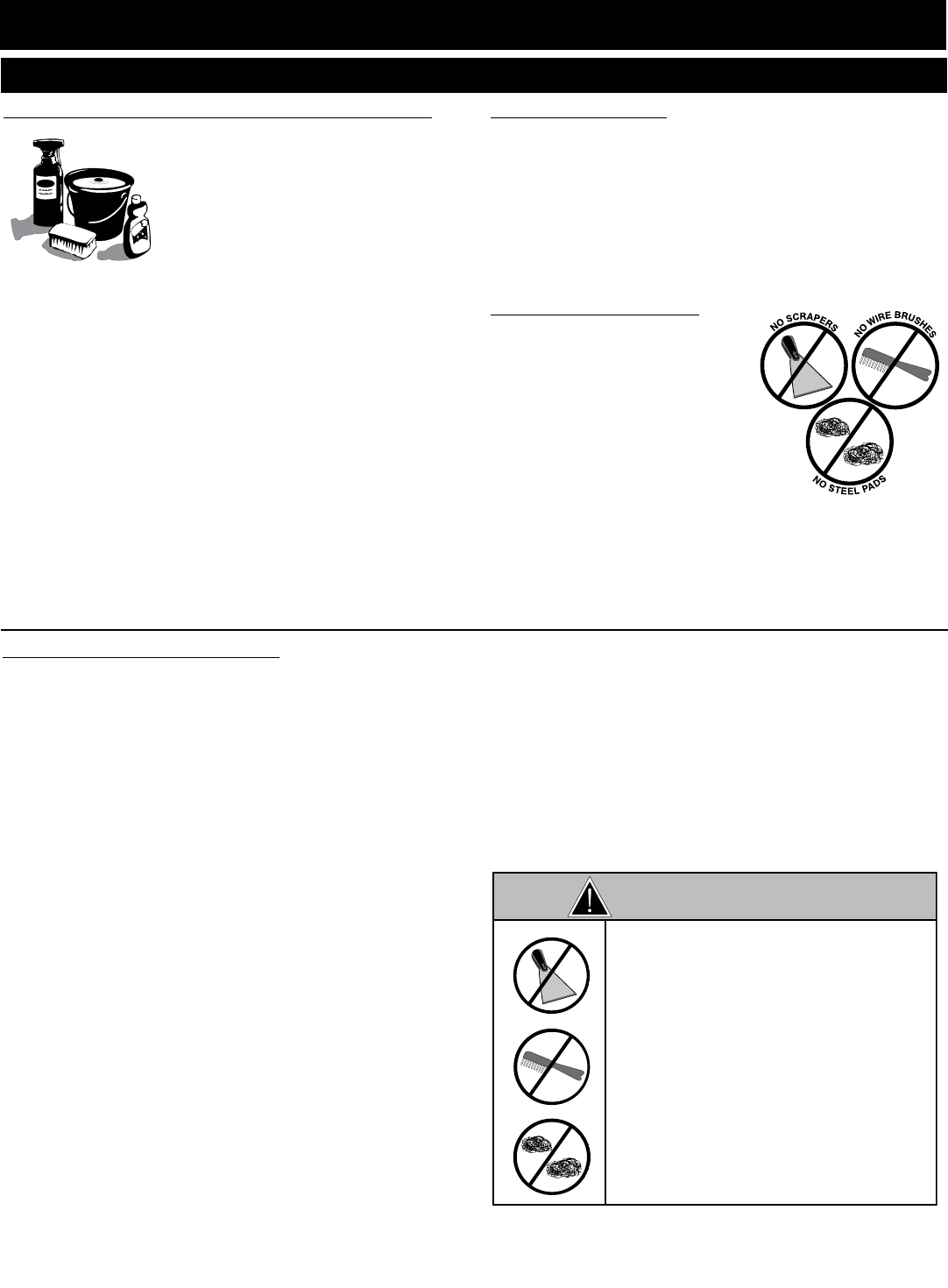
1000-BQ2 (Rev. 1) seRies opeRation & caRe manual • 11
1000-BQ2 series operation & care manual • 11
CAUTION
TO PROTECT STAINLESS STEEL
SURFACES, COMPLETELY AVOID
THE USE OF ABRASIVE CLEANING
COMPOUNDS, CHLORIDE BASED
CLEANERS, OR CLEANERS
CONTAINING QUATERNARY SALTS.
NEVER USE HYDROCHLORIC ACID
(MURIATIC ACID) ON STAINLESS
STEEL. NEVER USE WIRE
BRUSHES, METAL SCOURING
PADS OR SCRAPERS.
N
O
W
I
R
E
B
R
U
S
H
E
S
N
O
S
T
E
E
L
P
A
D
S
N
O
S
C
R
A
P
E
R
S
CARE AND CLEANING
CLEANING AND PREVENTIVE MAINTENANCE
PROTECTING STAINLESS STEEL SURFACES
It is important to guard against
corrosion in the care of stainless
steel surfaces. Harsh, corrosive,
or inappropriate chemicals can
completely destroy the protective
surface layer of stainless steel.
Abrasive pads, steel wool, or metal
implements will abrade surfaces causing damage to this
protective coating and will eventually result in areas
of corrosion. Even water, particularly hard water that
contains high to moderate concentrations of chloride,
will cause oxidation and pitting that result in rust and
corrosion. In addition, many acidic spills left to remain
on metal surfaces are contributing factors that will
corrode surfaces.
Proper cleaning agents, materials, and methods are vital
to maintaining the appearance and life of this appliance.
Spilled items should be removed and the area wiped as
soon as possible but at the very least, a minimum of once
a day. Always thoroughly rinse surfaces after using a
cleaning agent and wipe standing water as quickly as
possible after rinsing.
CLEANING AGENTS
Use non-abrasive cleaning products designed for use on
stainless steel surfaces. Cleaning agents must be chloride-
free compounds and must not contain quaternary salts.
Never use hydrochloric acid (muriatic acid) on stainless
steel surfaces. Always use the proper cleaning agent at
the manufacturer’s recommended strength. Contact your
local cleaning supplier for product recommendations.
CLEANING MATERIALS
The cleaning function can
usually be accomplished with
the proper cleaning agent
and a soft, clean cloth. When
more aggressive methods must
be employed, use a non-abrasive
scouring pad on diffi cult areas and
make certain to scrub with the visible
grain of surface metal to avoid surface
scratches. Never use wire brushes, metal scouring pads,
or scrapers to remove residue.
PREVENTATIVE MAINTENANCE
1. Ensure that the correct Operation and Care Manual is
available to all users.
2. Ensure that all users have been properly trained in
unit’s operation.
3. Do not exceed the unit’s capacity.
4. Inspect condition of plug and cord. Replace if damaged.
5. Clean dust from outer vents surrounding the unit.
6. Check door gasket integrity. Are there any tears? Is the
gasket worn or loose? Make sure seal is tight to unit
body. Replace gasket if integrity is compromised.
7. Check air temperature sensor mount on the interior of
chamber. Is the metal guard in place? Are the wires in
good condition?
8. Check caster or leg condition. Ensure mounting bolts
and assembly is secure.
9. Check control panel overlay condition. Are there any
tears or excessive wear on the graphic? Does the control
work properly when buttons are pushed?
10. Check that all control LEDs light up as applicable.
11. Is the Set Temperature comparable to the Actual
temperature displayed? If not, control needs calibration.
Call Service.
Contact Service for immediate repair if any of the above
problems exist.



